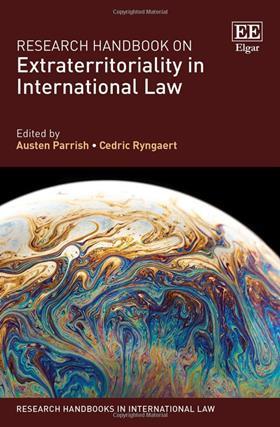Research Handbook on Extraterritoriality in International Law
Edited by Austen Parrish and Cedric Ryngaert
£220, Edward Elgar Publishing
Against a backdrop of conflict in the Middle East and Ukraine, this is a timely warning on the dangers of extraterritoriality. When a state seeks to impose its own national laws beyond its territorial boundaries, such actions grate against international law which ‘seeks to recognise even more distinctly the right of states and their citizens to be free from foreign interferences’. But there appear to be myriad threats to preserving territorial integrity. The book cites, for example, the Mircrosoft v Ireland case, where the US sought private emails of foreign citizens that were stored on data servers in foreign countries ‘and import them into the United States’. And in Europe and the US, there has been an increase in unilateral extraterritorial regulation that is ‘untethered from international agreement’.

In what this highly readable account calls ‘law’s new cartographies’, there are other menaces to territorial integrity. For example, spatialised regimes – or ‘assemblages of institutions, people and practices’ – that exist within a state might contest that state’s jurisdiction. Thus there are ‘immense potentials for actors to pursue strategic interests largely unchecked. Crucially, such regimes lack ‘an identifiable centre of institutionalised sovereignty’ and are in stark contrast to a rule-of-law based state with an institutionalised judiciary.
With many non-state entities operating in a highly fragmented universe of actors, there are many challenges in respect of data processing. Instruments that might influence behaviour in foreign jurisdictions are, for example, contracts between private parties, and company policies ‘that may not always be legally binding’. Indeed, this book considers the consequence of such instruments as a ‘kind of soft extraterritoriality’. While the book compares the basic parameters of jurisdiction over data to a ‘Russian matryoshka doll containing further puzzles’, technology is being harnessed to address extraterritorial data issues. One such solution is geo-blocking which involves blocking and limiting access to websites in different jurisdictions.
Divided into three parts – ‘Foundations and concepts’, ‘Regional perspectives’, and ‘Extraterritoriality in practice’ – this is a compelling account.
Nicholas Goodman is a sub-editor at the Law Society Gazette































No comments yet